
In 2025, a new wave of privacy-first crypto exchanges is challenging the status quo of digital asset trading. Platforms like Bitania and Bittam are at the forefront, offering secure crypto buying without the identity verification hurdles that have become the norm. As global regulations tighten, these no-KYC (Know Your Customer) exchanges are drawing both praise and scrutiny for enabling users to buy cryptocurrency anonymously while still prioritizing security and user control.

No-KYC Crypto Exchange 2025: What’s Driving the Craze?
The surge in demand for no-KYC crypto exchanges in 2025 is no accident. Crypto users are increasingly wary of sharing sensitive personal data, especially as high-profile hacks and leaks continue to make headlines. Traditional exchanges, pressured by regulators, require detailed identity checks for even modest transactions. For many, this process is slow, invasive, and a barrier to entry.
Enter Bitania and Bittam. These platforms are rewriting the rules by allowing users to trade major cryptocurrencies, like Bitcoin, Monero, Litecoin, Ethereum, and Tether, without submitting passports, selfies, or utility bills. Instead, they focus on robust encryption and noncustodial models that put ownership and privacy back in the hands of users.
Bitania Exchange Review: Privacy-First P2P Trading
Launched in October 2025, Bitania is a peer-to-peer (P2P) exchange built for privacy advocates. The platform removes KYC requirements entirely, letting users buy and sell crypto using a variety of payment methods, PayPal, credit cards, gift cards, or even cash by mail. Transactions are protected by end-to-end encryption, and users can shield their IP addresses via the Tor network, further enhancing anonymity.
Bitania’s approach isn’t just about privacy for privacy’s sake. By stripping away KYC, the platform also reduces the risk of data breaches and identity theft, two persistent threats in the crypto sector. For those seeking to buy cryptocurrency anonymously in 2025, Bitania stands out as a compelling option.
Top 5 Benefits of No-KYC Crypto Exchanges in 2025
-
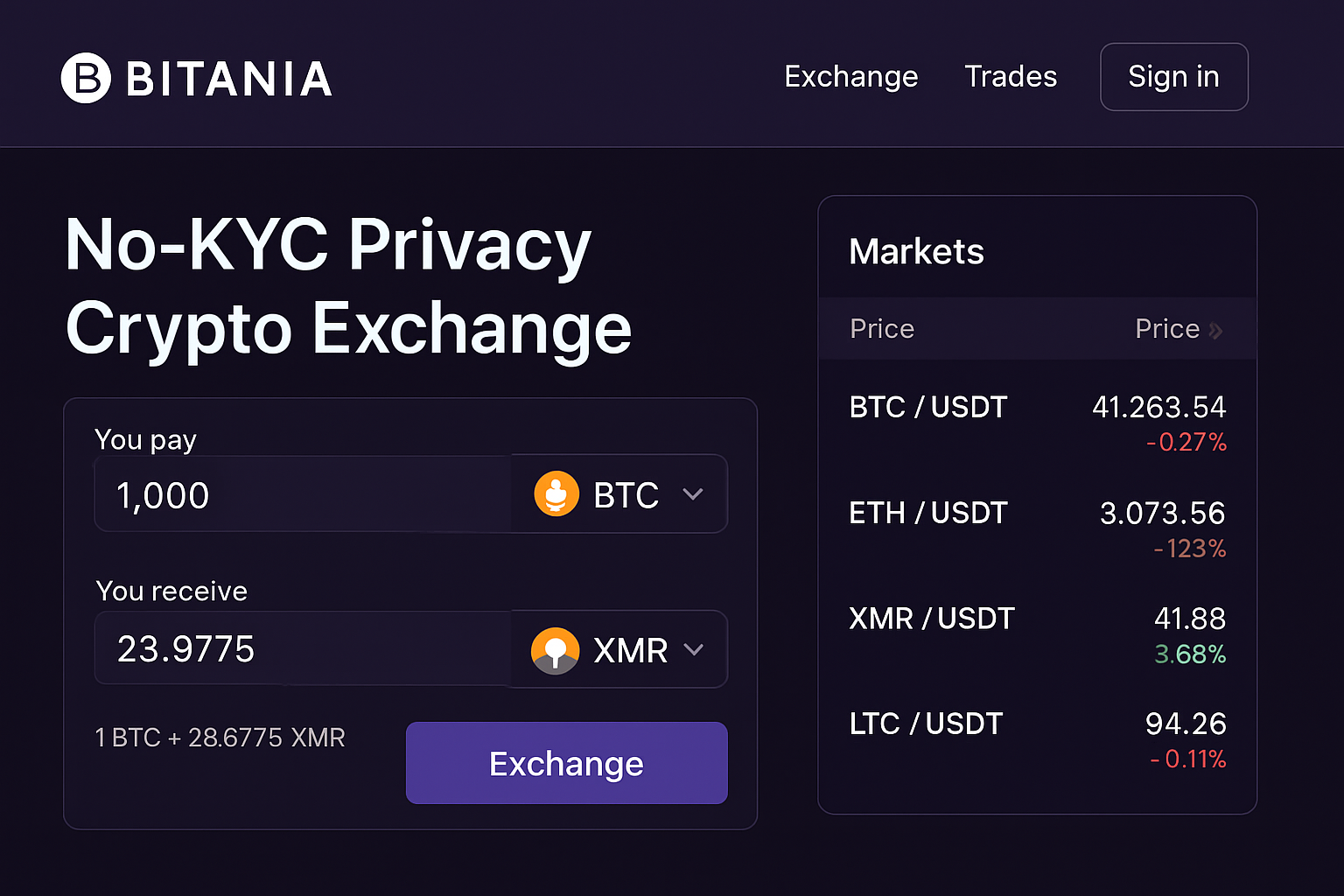
Enhanced Privacy and Anonymity: No-KYC exchanges like Bitania allow users to trade cryptocurrencies such as Bitcoin, Monero, and Ethereum without submitting personal identification, ensuring maximum privacy and control over sensitive data.
-
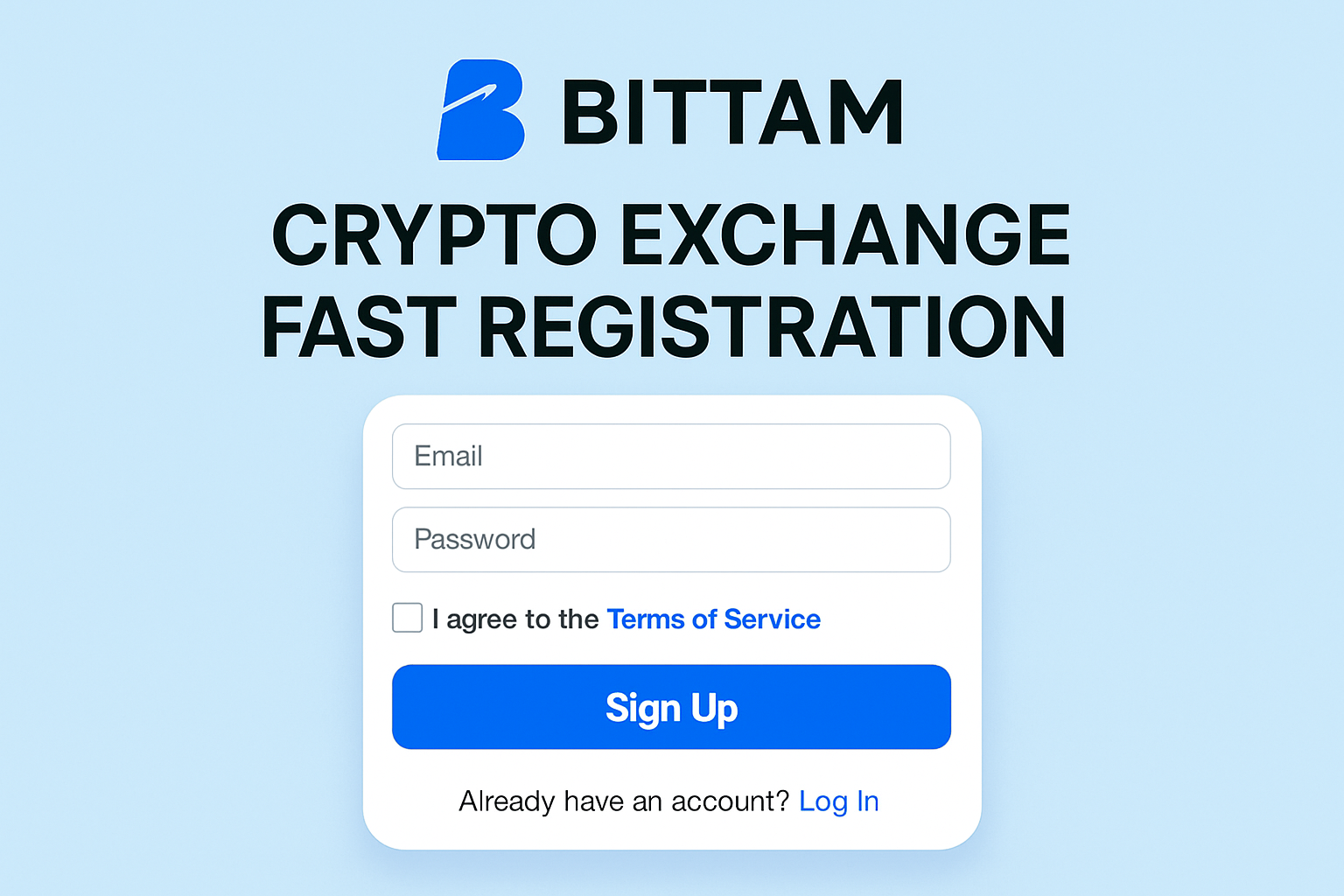
Immediate Access and Fast Onboarding: Platforms such as Bittam enable users to start trading instantly with just an email or phone number, eliminating lengthy verification processes and enabling seamless entry to the crypto market.
-
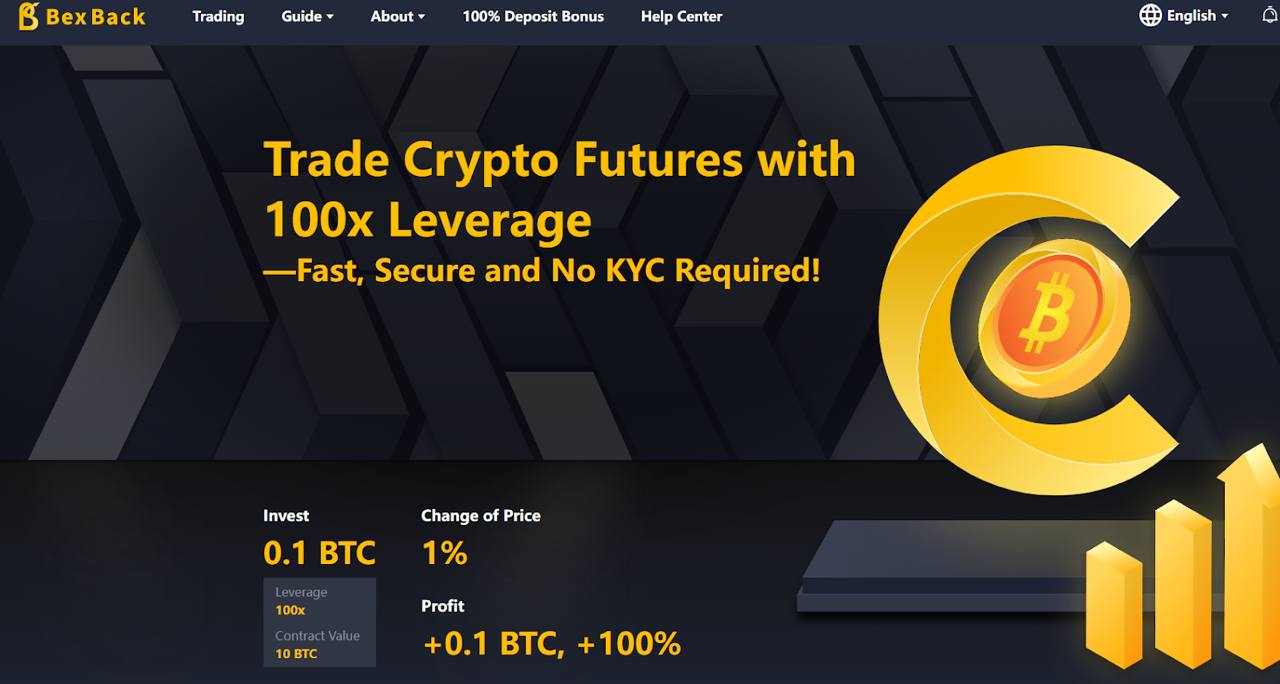
Global Accessibility and Fewer Restrictions: No-KYC exchanges are accessible to users worldwide, regardless of local KYC regulations, making it easier for individuals in restrictive jurisdictions to participate in crypto trading.
-
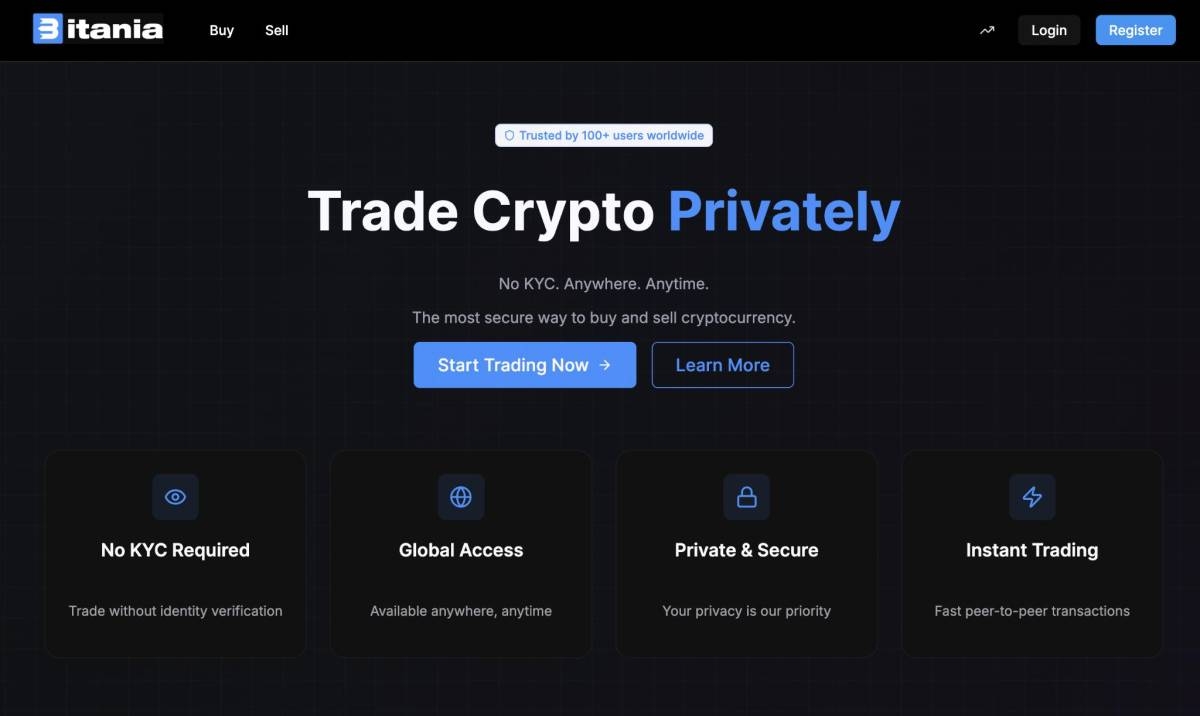
Reduced Risk of Data Breaches: By not collecting or storing sensitive personal information, no-KYC platforms minimize the risk of large-scale data leaks and identity theft, offering users a safer trading environment.
-
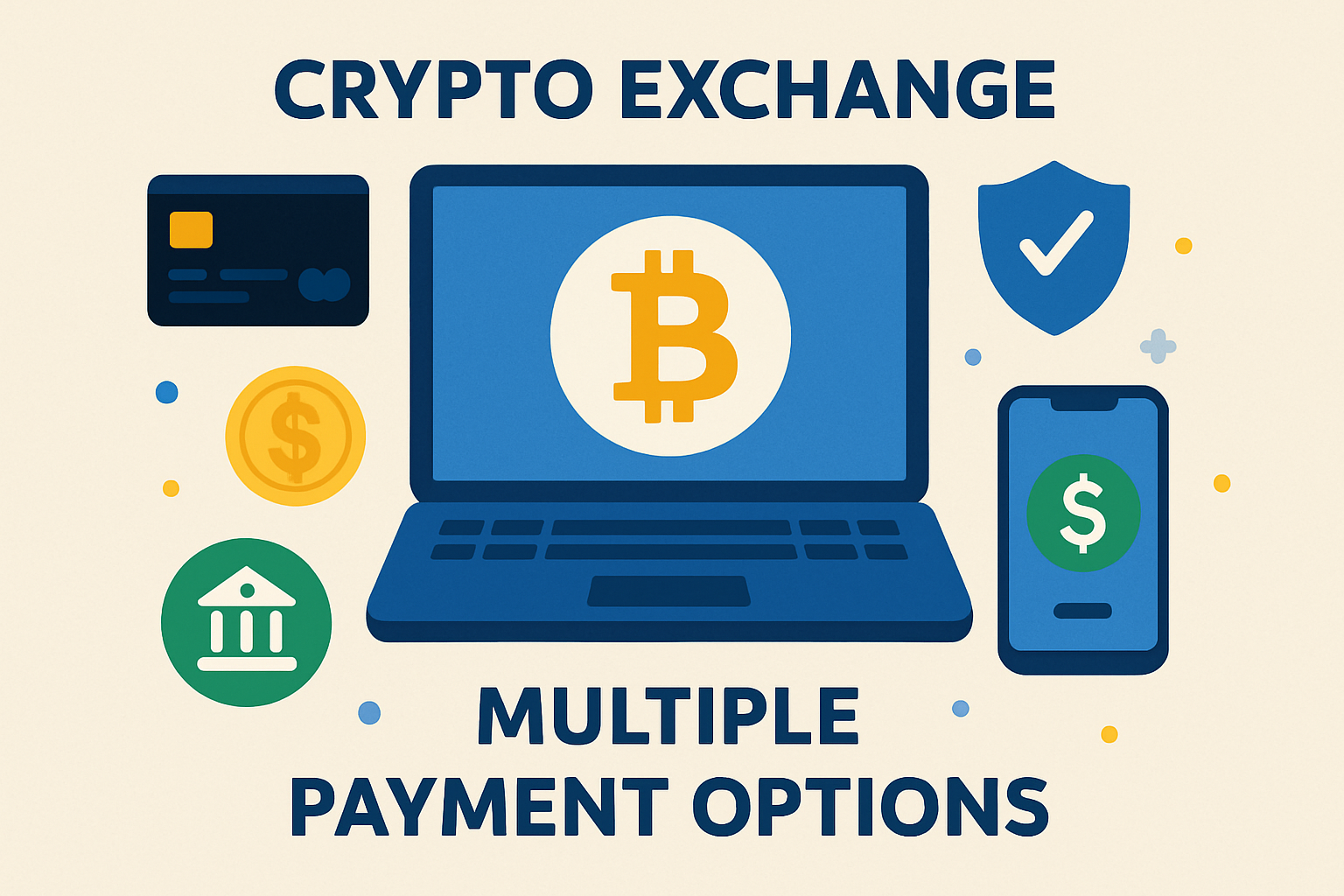
Flexible Payment Methods and Trading Options: Exchanges like Bitania support diverse payment methods, including PayPal, credit cards, gift cards, and even cash by mail, providing users with more flexibility and convenience in funding their trades.
Bittam Crypto Platform: High-Leverage, No ID Required
While Bitania focuses on P2P privacy, Bittam is targeting active traders with its high-leverage, no-KYC platform. Here, users can access up to 200× leverage, register with just an email or phone number, and start trading instantly. The platform boasts zero slippage execution and zero funding fees, sweetening the deal with a 100% deposit bonus for new users.
What sets Bittam apart from other no-KYC exchanges is its hybrid approach to compliance. Despite not requiring identity verification, Bittam holds regulatory licenses in the US, Canada, and Australia. This dual focus, privacy for users, compliance for regulators, shows how the landscape is evolving beyond the “Wild West” era into something more mature and sustainable.
Crypto Privacy 2025: Balancing Anonymity and Security
The rise of platforms like Bitania and Bittam isn’t without controversy. Regulators argue that KYC is essential for preventing money laundering and illicit activity. Yet, as crypto privacy in 2025 becomes a top priority for many, users are voting with their wallets, seeking out exchanges that let them trade on their own terms. The tradeoff? While these platforms offer enhanced privacy, users must be vigilant about platform security and potential regulatory changes.
For those considering a move to a no-KYC crypto exchange in 2025, the calculus is all about risk versus reward. On one hand, platforms like Bitania and Bittam offer genuine privacy and a streamlined onboarding process that stands in stark contrast to traditional exchanges. On the other, users must be mindful of the potential downsides: limited recourse in the event of disputes, potential exposure to unregulated markets, and the ever-present possibility of shifting legal frameworks.
Security remains a core concern. While Bitania’s encryption and Tor integration provide significant safeguards, and Bittam’s regulatory licenses add a layer of trust, users are ultimately responsible for their own asset safety. Private key management, using secure wallets, and practicing good operational security are non-negotiable in this space. For those who want to buy cryptocurrency anonymously but securely, taking personal responsibility is key.
Secure Crypto Buying Tips: Navigating No-KYC Platforms
If you’re considering using a no-KYC crypto exchange in 2025, here are some practical steps to help you stay safe and compliant:
Staying informed is equally important. Regulatory environments can change rapidly, especially as governments respond to the growing popularity of anonymous trading platforms. Keep an eye on official updates and community discussions to avoid surprises.
How No-KYC Exchanges Are Changing Crypto Culture
The emergence of platforms like Bitania and Bittam is more than just a technical shift – it’s a cultural one. The ability to trade without revealing your identity appeals not only to privacy advocates but also to those in restrictive jurisdictions or anyone concerned about data sovereignty. As these platforms mature, they’re likely to drive innovation across the industry, pushing even regulated exchanges to rethink how they handle user data and privacy.
Yet, as with any disruptive trend, there are risks alongside rewards. Some experts warn that the lack of oversight could invite bad actors or put uninformed users at risk. Others argue that robust self-custody tools and transparent peer-to-peer protocols can mitigate many of these concerns.
Looking Forward: The Future of Anonymous Crypto Trading
The popularity of no-KYC exchanges like Bitania and Bittam signals a clear demand for greater privacy and autonomy in crypto trading. Whether these platforms become the new norm or remain a niche solution will depend on how they adapt to ongoing regulatory pressures and user needs.
For now, they offer a compelling alternative for those who value privacy above all else. As always, the best approach is an informed one: weigh your options, understand the risks, and stay adaptable as the landscape evolves.






